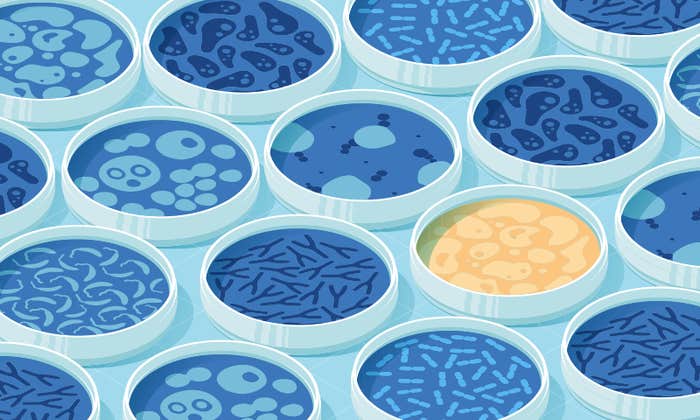
Robert Conquest, a historian of Soviet Russia and a poet, once summarized Shakespeare’s 28-line poem, “The Seven Ages of Man,” in five lines. They go like this:
Seven Ages: first puking and mewling
Then very pissed off with your schooling.
Then fucks and then fights.
Then judging chaps’ rights—
Then sitting in slippers—then drooling.
For biotech researchers and entrepreneurs who see aging as an engineering problem to be solved, the goal is to halt the process somewhere, I imagine, between the third and fourth lines. They want to grow up but not grow old, because once you’re old, things start going wrong. “The current system in healthcare is a whack-a-mole of your symptoms until you die,” Joon Yun, the founder of the Race Against Time Foundation, told Nautilus. “It addresses the diseases of aging, but not curing the underlying process behind aging itself. The healthcare system is doing a good job of helping people live longer and stronger lives, but aging is still a terminal condition.”
It’s also still a concept without a clear definition. Nevertheless, scientists have a rough idea. Leonard Hayflick, a co-founder of the National Institute on Aging and a past president of the Gerontological Society of America, says aging is “the result of the accumulation of unrepaired changes or losses in molecules (a catabolic process).” Research on aging, he says, tries to answer the question: “Why do things ultimately go wrong?”
“The study of Alzheimer’s Disease and even its resolution will tell us nothing about the fundamental biology of aging.”
In his Ingenious interview, we recently asked Hayflick how scientists might make some progress on it. Focus on the fundamentals, he said, rather than what’s gone wrong. In other words, figure out what makes the car break down, rather than constantly trying to fix or replace the worn-out parts. “Most studies are either descriptive, studies on longevity determinants, or studies on age-associated diseases,” Hayflick said. “None of this research will reveal information about the fundamental biology of aging. Less than 3 percent of the budget of the National Institute on Aging in the past decade or more has been spent on research on the fundamental biology of aging.”
He’s got nothing against resolving Alzheimer’s disease, but the amount of money spent on it under the aegis of “aging research” irks him. “The resolution of Alzheimer’s disease as a cause of death will add about 19 days onto human life expectancy,” he said. “I have suggested that the name of the [aging] institute be changed to the National Institute on Alzheimer’s Disease. Not that I support ending research on Alzheimer’s disease, I do not, but the study of Alzheimer’s Disease and even its resolution will tell us nothing about the fundamental biology of aging.”
Hayflick, author of How and Why We Age, published in 1994, once wrote a paper about aging research’s lack of focus on the fundamentals. He titled it “The One Billion Dollar Misunderstanding” because, he said, “that’s precisely what it is.” Curing diseases associated with aging, like cardiovascular disease, won’t tell us anything about its nature, he said, because people recover and then “find that the aging process continues.”
Brian Gallagher is the editor of Facts So Romantic, the Nautilus blog. Follow him on Twitter @bsgallagher.


























